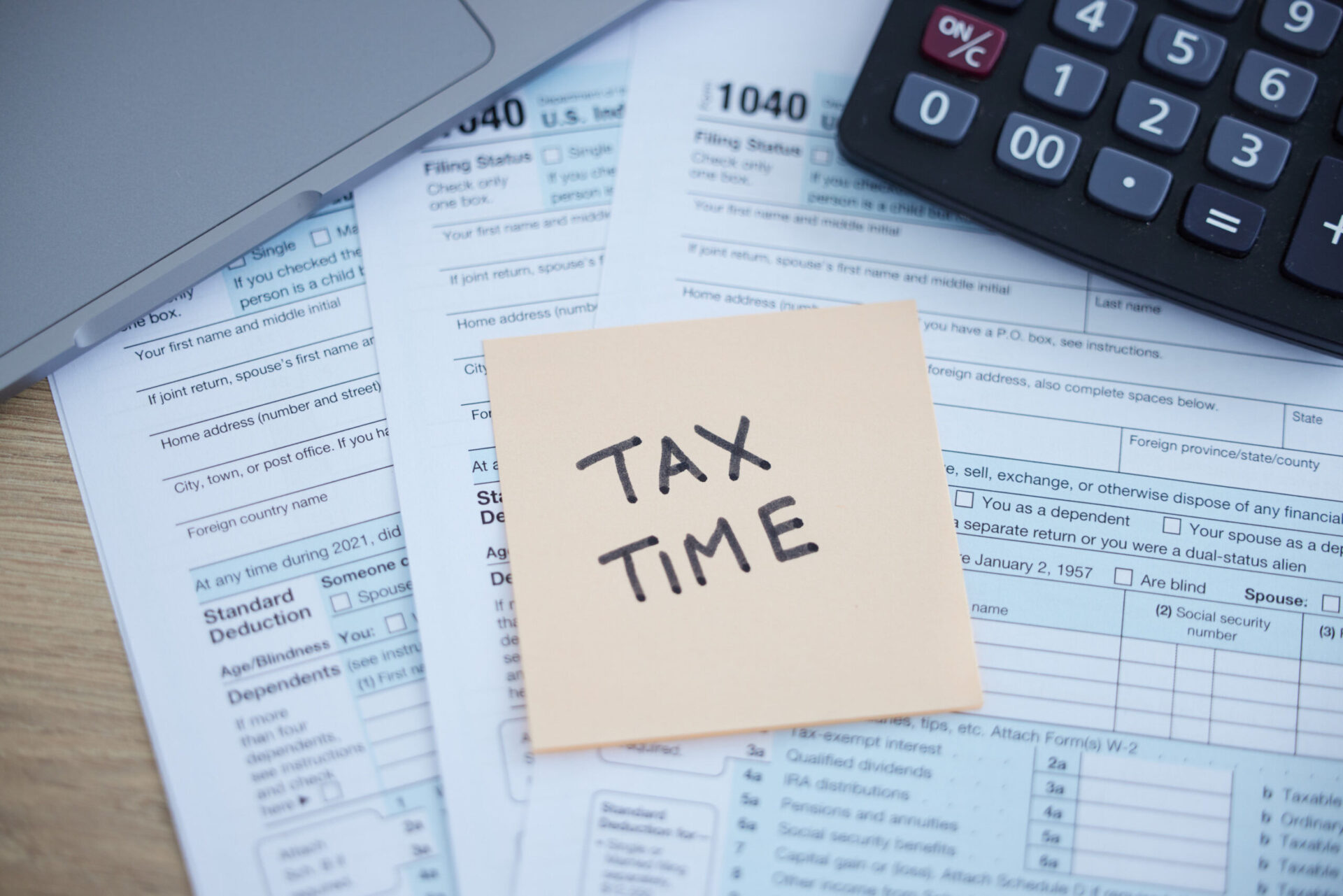Filing taxes promptly is a responsibility that Canadian citizens and residents alike need to fulfil each year. Life can, however, sometimes get in the way, causing delays in meeting tax deadlines. When they can be costly and complicated, it’s no secret that taxes are problematic for many Canadians. Unfortunately, whether due to oversight, unforeseen circumstances, or complexities in personal or business affairs, missing the tax filing deadline can have financial implications. In Canada, the penalty for filing taxes late varies depending on several factors, including the reason for the delay and whether you owe taxes or are entitled to a refund. So, what is the penalty for filing taxes late in Canada? In this article, we explore the reasons for incurring a penalty, and how much you might need to pay if you file your taxes late.
What is the tax deadline?
The Canada Revenue Agency (CRA) requires individual taxpayers to submit their income tax returns by April 30 every year, or the following business day if that date falls on a weekend or a holiday. If you miss the filing deadline and have a balance owing, you will face a late filing penalty. If you don’t have a balance, you will not face a penalty. If you don’t pay your outstanding balance by April 30, you’ll be charged interest and penalties from May 1, 2024. Business owners and self-employed Canadians also need to pay their taxes by April 30, 2024, although the tax return deadline is usually June 15 (unless this date falls on a weekend or holiday).
What is the penalty for filing taxes late?
The CRA imposes penalties for late filing, and the severity of these penalties depends on the specific circumstances. Generally speaking, if you owe taxes and fail to file your return on time, the penalty is 5% of the balance owing plus 1% of the balance owing for each full month your return is late, up to a maximum of 12 months. If, for example, you owe $1,000 in taxes and your return is six months late, the penalty would be $50 (5% of $1,000) plus $60 (1% of $1,000 multiplied by 6 months), totalling $110. If you file more than a year late and the CRA charged a late-filing penalty in any of the three preceding years, the penalty could increase to 10% of your balance owing, plus 2% for each full month your return is late, up to a maximum of 20 months. Another consequence of filing your taxes late include the fact that any benefits or credits you qualify for might be disrupted, including the following:
- Goods and services tax/harmonized sales tax (GST/HST) credit, including provincial or territorial credits
- The Canada Child Benefit (CCB), including provincial or territorial payments
- Old Age Security (OAS) benefits
For this reason, it is always best to tackle any tax debts you have as early as you possibly can. At Spergel – the ‘get rid of debt’ people – we’ve been helping Canadians to substantially reduce or eliminate their tax debts for over 34 years.
Do you get charged interest for filing taxes late?
In addition to penalties, the CRA charges compound daily interest on any outstanding balance owing, starting the day after the tax filing deadline. The interest rate can fluctuate and is updated quarterly. Therefore, the longer you delay, the more interest you’ll accumulate on your outstanding tax debt. This is another reason to confront your tax debts sooner rather than later, to avoid a hefty interest bill on top of your debt.
Are there any exceptions to being charged interest and penalties?
While penalties and interest charges are standard consequences for late filing, certain circumstances may qualify you for relief. If you have a legitimate reason for not filing your taxes on time, such as a serious illness, a natural disaster, or a death in the family, you can request relief from penalties and interest charges through the CRA’s taxpayer relief provisions. It’s essential, however, to provide supporting documentation and demonstrate that the circumstances were beyond your control. It can be quite challenging to create a compelling case for your circumstances, and so you might want to engage a Licensed Insolvency Trustee to help you.
What should you do if you’ve missed the tax deadline?
If you’ve missed the tax filing deadline, it’s crucial to take action as soon as possible to mitigate penalties and interest charges. Here are some steps we recommend you take:
- File your return as soon as possible: even if you missed the deadline, filing your return as soon as possible can help to minimize penalties and interest charges.
- Pay any taxes owed: if you owe taxes, try to pay the amount owing as soon as possible to reduce interest charges. If you’re unable to pay the full amount, consider making a partial payment to lessen the financial burden. Often, the CRA is open to working on a payment plan so it’s important to inform them as soon as you can if you don’t think you can make your full payment.
- Speak to a Licensed Insolvency Trustee: Licensed Insolvency Trustees are the only professionals in Canada legally able to file all forms of debt relief, making them well placed to advise you on what to do in your financial circumstances. If you’re unsure about how to proceed or need help navigating the process, a Licensed Insolvency Trustee will review your financial circumstances and recommend an appropriate form of debt relief, like a consumer proposal or a bankruptcy.
- Request relief if eligible: if you believe you qualify for relief from penalties and interest charges due to extenuating circumstances, submit a request to the CRA with supporting documentation.
What is the penalty for filing taxes late in Canada? FAQs
Here are some of the most common questions we receive about the penalty for filing taxes late in Canada:
Can you file taxes after the deadline?
Yes, you can file taxes after the deadline in Canada, but it’s important to be aware of the consequences. If you owe taxes, you may face penalties and interest for late payment. However, if you’re entitled to a refund, you won’t be penalized for filing late. It’s crucial to file as soon as possible to minimize any potential penalties and interest charges. Additionally, late filing could impact your eligibility for certain benefits and credits. If you’re unable to file by the deadline, consider seeking assistance from a Licensed Insolvency Trustee to get to the bottom of your tax debt issues, and to ensure compliance with tax laws and regulations.
How do you file late tax returns in Canada?
If you need to file late tax returns in Canada, the process is straightforward. Firstly, gather all necessary documents, such as T4 slips, receipts, and other relevant paperwork. Next, complete your tax return using either paper forms or electronic filing methods, such as certified tax software. Be sure to accurately report all income and deductions to avoid potential audits or penalties. If you owe taxes, make payment arrangements with the CRA as soon as possible to minimize interest charges and penalties. If you’re unable to pay the full amount owed, consider discussing options for instalment payments or negotiating a payment plan with the CRA. If you need help with reducing or eliminating your tax debt, a reputable Licensed Insolvency Trustee can help you to gain debt relief. Finally, file your late tax return as soon as possible to avoid further consequences and to stay compliant with Canadian tax laws.
What happens if you don’t file taxes for 5 years in Canada?
If you fail to file taxes for five years in Canada, the consequences can be significant. First and foremost, you may incur penalties and interest on any unpaid taxes owed for each year of non-compliance. These penalties can accumulate over time, leading to a substantial financial burden. Additionally, not filing taxes can result in the loss of certain tax credits, benefits, and refunds that you may be entitled to. Moreover, the CRA may take enforcement actions to collect the outstanding taxes, which could include garnishing wages, seizing assets, or placing liens on property. Furthermore, continued non-compliance with tax filing requirements may lead to legal consequences, such as fines, prosecution, or even imprisonment in extreme cases. It’s essential to address any outstanding tax obligations promptly and seek assistance from tax professionals, a Licensed Insolvency Trustee, or the CRA if you’re facing difficulties in meeting your filing obligations.
Do you have to file taxes if you don’t live in Canada anymore?
If you no longer live in Canada, whether you’re required to file taxes depends on your residency status and sources of income. Generally, if you are considered a non-resident for tax purposes and do not earn income from Canadian sources, you may not be required to file taxes in Canada. However, if you still earn income from Canadian sources, such as rental income, pension payments, or capital gains from the sale of Canadian property, you may still have to file a Canadian tax return. It’s crucial to determine your residency status and understand your tax obligations to ensure compliance with Canadian tax laws. Consulting with a tax professional or contacting the CRA can provide clarity on your specific situation and help you meet your filing requirements accordingly.
So, what is the penalty for filing taxes late in Canada? Filing taxes late in Canada can result in penalties and interest charges, which can compound over time and significantly increase your tax debt. It’s essential to understand the consequences of late filing and take proactive steps to address any missed deadlines promptly. If you are struggling with your tax debt, book a free consultation with Spergel – we can review your circumstances and help you on your journey to a fresh financial future.



















